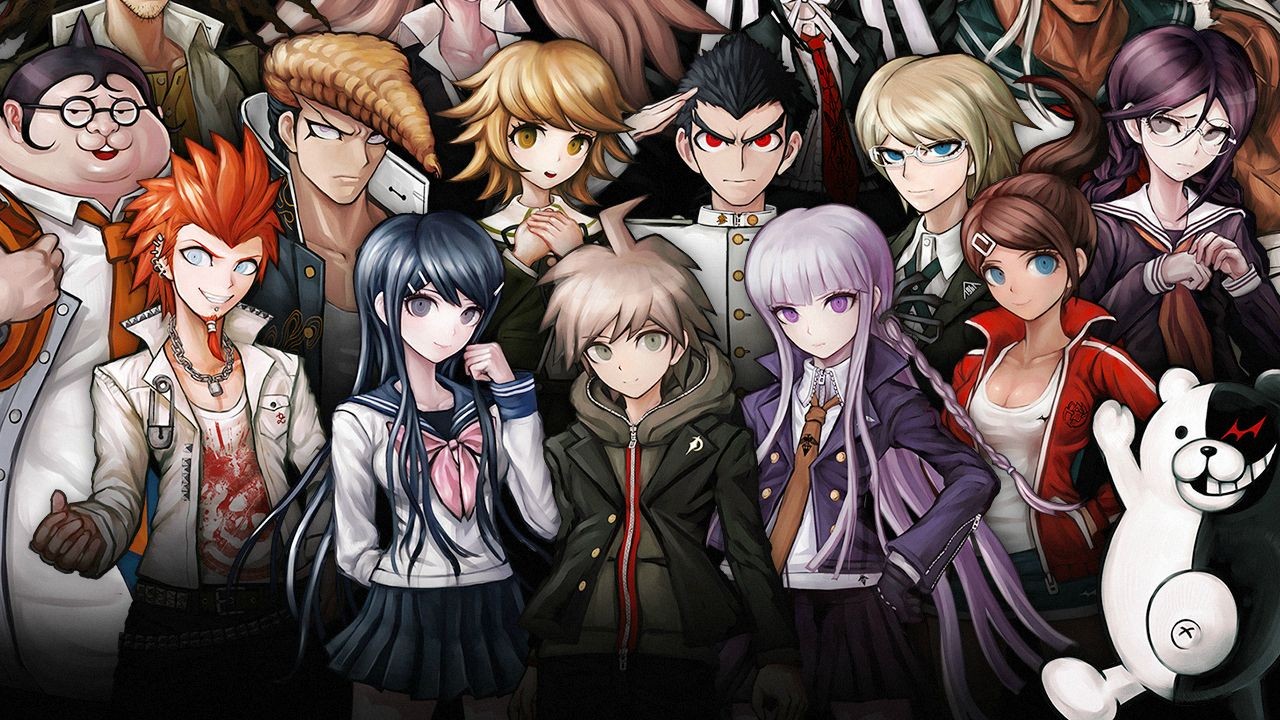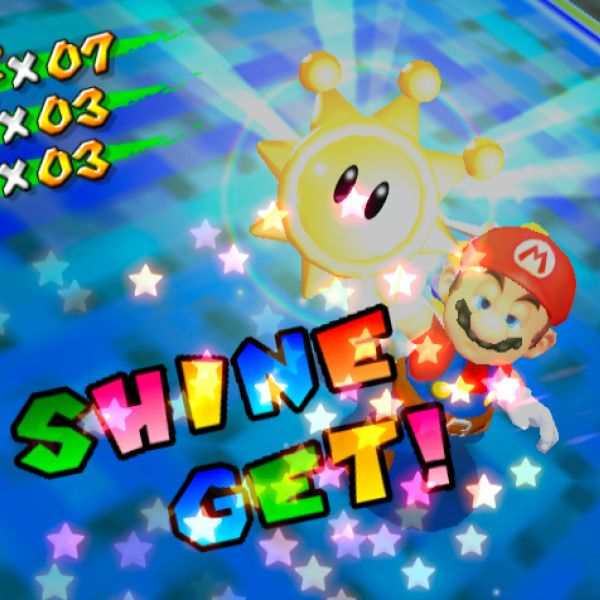 |
A reader by the name of Dustin recently sent me this e-mail:
Hello.
I’m not sure if you’re familiar or not with the Dangan Ronpa games (and the hype surrounding them in recent months), but it has piqued my curiosity as far as translation and localization go. There has been an Let’s Play of the game (that is essentially a translation of it) going on for a while now that fans have been following, but recently an English patch of the game by different fans has been released. This has stirred quite a conflict among fans because of the major differences between the two translations and which is “better”. People defending the fan translation say it’s closer to the original, while people defending the LP say it made localization changes that help things make more sense, sound less silly, etc. I’ve also heard the fan translation adds Western references. I find a lot of the people on both sides of the argument don’t really know what they’re talking about.
I can give you an example of the the kinds of problems people are having. Each character has a title. In the LP, the titles work like this: “Super High School Level [talent]”. In the fan translation, it’s “Super Duper High School [talent]”. In the original Japanese, it’s “超高校級の「talent」” . Opponents of the fan translation argue that “Super Duper High School” sounds, frankly, really stupid. Defenders of the fan translation argue it’s closer to the original Japanese and that the LP translator purposefully changed how it sounds because he didn’t want it to sound stupid. What is your take on the matter? Is “Super Duper” really a closer translation? Is it meant to sound childish? Would Japanese people find the original title silly and hard to take seriously? In general, is making a translation that sounds really stupid worth sticking closer to the source matter?
That’s a lot of questions, but this seemingly simple matter is more complex than I thought it’d be. I was hoping to see your opinion on this matter.
Thanks!
There’s so much I could write on this topic, it isn’t even funny. I very literally have had to deal with this sort of thing every day for the last ten+ years – for example, many of the shows I work on also have had fan translations – multiple fan translations, at that – and there’s always constant arguing about which fan translation is “correct”, whether or not my own translations are “correct”, or even whether the official manga translations are “correct”. And then there’s all sorts of weird bickering about really, really minor semantics. I should probably write an article about this someday, although I fear it’d take too long and I’d lose interest before it was finished 😛
I’ve also been in plenty of fan translation wars – whether by accident or due to my own naivety – so I really don’t want to get involved in this one. In fact, fan translation wars is another topic I should write about someday. Man, I should just write a series about this stuff someday!
Okay, so down to the questions. First off, I’ve learned that with this sort of thing, you need to step back and be an unattached observer. One of the first things to know is that there’s a weird psychological phenomenon with translations in which the first translation a person is exposed to tends to be the one that person will cling to – they’ll refuse to accept any others, even in the face of legitimate criticism of specific issues. There’s probably an actual scientific name for this, but I don’t know it. In any case, it’s important to keep that in mind and try to avoid falling into that trap. I think this is what gets most fans of anything in a frenzy when an alternate translation is released.
Next, nitpicky comparisons of individual terms is fine and all, but it’s not a way to compare full translations. This is the first (and often only) thing fans pick up on when comparing translations – and it’s pretty silly. Unless a term has a REALLY terrible translation (like the infamous ”Ragnarok” to “Kangaroo” translation) then nitpicking terminology translations only scratches at the surface of a game’s translation quality. You gotta get into the meat of the text – in fact, that’s exactly why I started this site, to dig deeper into translations than most people tend to look.
So with all that said, I can’t really say which translation is better or more correct – I’d need to play both versions side-by-side with the original Japanese version for a significant amount of time. From what little I’ve seen of screenshots and stuff, they both seem like competent translations, but it sounds like it’s a really huge game, so that’s probably not enough to say anything.
As for the specific example provided here, 超高校級の is something like “super/hyper/mega/ultra highschool level/class”. The first part can be translated multiple ways, so I’m not surprised that different translators have translated it differently. I don’t know if “super-duper” is better or not – I mean, from what little I know about the game, it’s pretty wacky and quirky, so it could work. I should say, though, that to me, 超高校級の seems like a very average, par-for-the-course word in terms of Japanese entertainment. It’s the sort of thing I run into all the time and had I encountered it without any prior knowledge I’d probably just have gone with a straight translation too. But I wouldn’t have had any qualms if the licensor showed up and said it should be “super-duper”, either. Translation is about being flexible.
I should also mention that 級 in terms like this doesn’t always need to be translated as it’s often implied in the translation itself (examples: 70m級ジャンプ = 70 meter jump, B級映画 = B-movie). So “level” doesn’t NEED to be included, although it can be. Again, it’s just a matter of taste.
So the treatment of this term really comes down to:
- Context
- Different translators translate differently
- Different thoughts on the intended purpose
- Different tastes/opinions
Assuming equal Japanese comprehension skill and no mistranslations, you’re almost always going to get different translations with this sort of thing. That’s why terminology lists only scrape the surface of translation quality – you have to dig deeper into the actual text to get a better look. It’s harder to do, but if you want to compare translations and try to say one is better than the other, that’s the way to do it.
So, again, I don’t want to step into this translation war – it sounds like both translations have had a ton of hard work and love put into them, so it’s not my place to jump in, with no experience with the game whatsoever, and start saying this should be this or this should be that. I know very little about the game except that it’s in some sort of school with students locked in it and murder mysteries and that weird bear looking thing. And that FUNimation picked up the anime.
There’s a lot more I want to say on the subject of multiple, competing translations and how to approach them as a translator and as a player/observer, but I’ll save that for another day. Still, all this stuff DOES make me want to compare different fan translations for smaller, simpler games someday – I wonder if any such games fit that bill. It would make for a really interesting project, so if anyone has any suggestions, let me know!






Hey, I’m the one who sent this message originally. Haha, yeah, I figured it was kind of a big question to ask and I don’t really know what I expected you to say about it. I guess it was just the fact that it was an interesting translation-related thing going on recently.
I figured a lot of it was due to people preferring what they see first, so that makes sense.
Actually now that I think about it, another similar psychological bias is the first time you’re told a fact (like “this translation is better than this other one because of X”) you’re more likely to cling to that fact, especially in the face of opposing information, regardless of rational evidence. So that’s another thing that I think fuels these sorts of fan translation competitions.
Man, I wish I could remember the name of these biases. I feel so forgetful right now 😯
Well, the anime answered the question about the titles. They are stated, in English, to actually be “Super Duper” in the original version. Apparently it was also written as “Super Duper” in English in the game at some point, too. It’s kinda ironic that people got so mad about that issue the most, then, but it’s like you said about the biases people have.
(Disclaimer: I’m the LP translator)
Just a correction – the anime doesn’t state anything about English terms – that was an addition by the fansub translation. We still don’t know what Funimation, the actual licensor, is going to do about the term in their translation. We’re also going to discover what an official translation does with the term in the game, too, since one was just announced. As for usage of Super Duper in the Japanese version of the game – that was in a loose Engrishy translation of one video title. I wouldn’t recommend any localisation team to blindly accept English that appear in Japanese games – it’s usually written by people who can’t really speak English.
There are many reasons why I don’t like the “Super Duper” translation and I elaborated on them elsewhere. It’s not just the silliness. Don’t get me wrong, Project Zetsubou’s translation is far better edited than mine was (I didn’t really know what I was doing for a large part of it) – they have just made some decisions that seem to me to be misguided.
Hmm, I’m hardly a psychology expert, but I *think* you may be referring to the Mere Exposure Effect. Basically, it states that given two or more neutral stimuli (e.g. Chinese characters for people with no knowledge of eastern languages), a person will tend to prefer the one that he or she is exposed to the most. I guess you could also see it as an extreme case of first impressions as well.
I believe cognitive inertia might be the term you’re looking for, but don’t quote me on that
Alternatively, it may be the Semmelweis reflex
Since this this is my first post I’d just like to say that this site is awesome and I can’t wait to see what you compare next Mato. This is some really interesting stuff. Alright back on topic. It’s unfortunate that the internet is full of arguments by people who don’t really know what they are talking about. I wish more people would stop and take the time to think before they type. I’ve played a ridiculous number of fan translated games, and I’m always interested in this kind of thing. It seems like it could be a lot of fun to play the fan translated version alongside the video Lets Play to see the differences. I’m just weird like that.
Preferring what they see first is also a big problem in music. There are often HUGE arguments about which version of a song they think is better, mostly happens with covers and which one gets more airplay. The Jimi Hendrix cover of “All Along the Watchtower” is much more popular than the original Bob Dylan version most likely because the Hendrix version is the one you see in movies, on the radio, etc. Heck, some people don’t even know that it was originally a Bob Dylan song. Then you get cases of the original artist liking the new version more than their own! Quick example, when Johnny Cash covered “Hurt” and altered the lyrics and flow, Trent Reznor was sad because he admitted that the song wasn’t his anymore and that Cash’s version was every bit as good as his own.
Hey, I know I’m a little late to the party, but since I just started to divulge into your site a little more, Mato, I also stumbled upon this article. I just wanted to say that the phrase “Super-Duper” is actually used in the Japanese version of the game and is probably why most people actually stick adamantly to its usage. Just thought I throw that in there, lol.
(PLEASE NOTE THE FOLLOWING TEXT IS A MASSIVE GAME SPOILER BUT YOU POSTED THIS LIKE A YEAR AND A HALF AGO SO IT’S OKAY RIGHT)
Having found the context of the one phrase that says “Super Duper” in English, in reference to “Super High School Level”, in the Japanese version:
Japanese text: 超高校級の絶望的おしおき
Japanese text romaji: Chou-Koukou-Kyuu no Zetsubou-teki Oshioki
Japanese version’s English subtitle: “Super Duper Nasty Torture”
An accurate rendering of the text: Super High School Level DESPAIR-Type Execution
The way the Japanese subtitle cuts out the mentions of “High School Level” and misinterprets “Despair”, I NEVER realised that the title is actually, in essence, “Execution, Junko-Style!”
The Official English version didn’t pick up on this fully either and calls the video “The Ultimate Punishment”, changing “Super High School Level” to “Ultimate” as in the rest of the translation, but completely ignoring the bright red, highlighted “Despair”.
Both translations also ignore that “Oshioki” is the word used to refer to Executions in the Japanese script.
It’s literally the worst subtitle in the entire game, cutting out a ton of the information in the line, so it’s strange to me that people would’ve held onto that as the official translation of “Super High School Level”, especially considering anything about high school is cut out!
Even more late to the party, but I think I found another possible word for the phenomenon you’re talking about.
https://en.wikipedia.org/wiki/Anchoring
It still doesn’t completely describe what you’re going for to a T, but it’s the closest thing I’ve found.
The only thing I find that’s different is that its use is related toward making a decision and not so much describing the actual effect of developing an attachment to something.
Thanks you! I knew I’d run across a term for it at some point over the years, this must be it! Super awesome thanks!
“Baby duck syndrome” comes to mind, which describes the tendency of people to judge something based on its similarity to what they first learned or are familiar with. Though I think it’s pretty informal.
Cool, that does seem somewhat related. Thanks!
Hi, I was wondering what the text in this video said. Could You please translate it
WARNING: CONTAINS POSSIBLE SPOILERS AND DISTURBING CONTENT.
https://www.youtube.com/watch?v=N_W_3w_sfoI
Thank You!
I do wanna play this game sometime so I’m afraid I can’t help 🙁
This is first-case spoiler content (sort of!). I’m not a translator! This is a super-old comment no longer being watched! Let’s go!!!!
”この映像は開発初期に作成されたものに別途楽曲を加え再編集しております。” (This video has been re-edited with a different musical score to what existed in early development.)
[pre-trial image]
山田一二三: [Yamada Hifumi]
「死んでるのか。。。?」 [She died…?]
「嘘だろ。。。どうして。。。」[It’s a lie… why…]
「誰かに殺された。。。って事か?」[She was killed by somebody… is that it?]
[trial accusation]
主人公: [Protagonist]
「松崎クン。。。」[Matsuzaki-kun…]
「君なんだろ? 君が彼女を殺したんだろ?」[Why did you? Why did you kill her?]
松崎和雄:[Matsuzaki Kazuo]
「お、俺が。。。殺しただって。。。?」[You’re sayin’ I killed her…?]
「ふざけんな!俺じゃねぇよ!」[Quit fooling! It wasn’t me!]
「テメェこそどうなんだ?」[The heck’re you talking about!?]
「テメェが殺したんじゃねぇのか!?」[Didn’t you kill her!?]
主人公:[Protagonist]
「だったら、他のみんあにも聞いてみようか?」[If that’s true, how about we hear what everybody else says?]
「ボクが殺したのか、キミが殺したのか。。。」[Did I kill her, or did you kill her…]
[Monokuma holds up a SIGN: 投票結果 “Voting Results”]
[all characters rolled over until it hits Kazuo – it’s worth a note that the text is nonsense until it actually hits Kazuo, not lining up to portraits, consisting only of a few names, and at one point reading “Kazuo Kurosaki”]
[GAME OVER SCREEN]
とうひょうけっかがでました。The voting results are in.
マツザキくんがクロにきまりました。Matsuzaki-kun was determined to be the criminal. [he’s literally called ‘kuro’ as in ‘black’.]
マツザキくんのしょけいをかいしします。The execution of Matsuzaki-kun will now commence.
[execution video]
SIGN: 処刑中 “In Execution” [very similar to an “in surgery” sign at operating rooms]
TITLE: 千本ノック “One Thousand Fungoes” [the same name in the final product, which in the Japanese version of the game was translated into Englishas ‘million’, as the thousand can just mean ‘a looooot’.]
Since this article was posted, the official translations of both the first, second and spinoff games have been released (quite long ago, actually – February of 2014).
The official translation of the phrase “super high-school (level)” is simply “Ultimate”. The “Super High-school Level Biker Gang Leader” is the “Ultimate Biker Gang Leader”, for example. I’m really happy with the change; it feels way more natural and like more of a localization than a translation, which I dig. When something is official, it’s also easy (or at least easier…) for a fan to defer what’s “correct”.
Then again, the official translation is also the first translation I was exposed to, and I know first-hand what you said about that holds a lot of truth, so I don’t doubt that’s exercising its power over me here, too…
Each translation has their benefits, but IMHO the fan translation was much funnier, largely due to its use of swear words and pointed insults during comedic moments in the dialogue. These moments are toned down a little in the official translation, which means some of the zingers land with a lot less punch. (Example: “obviously, I lied!” in the official translation vs “I lied my fuckin’ ass off!” in the fan translation.)